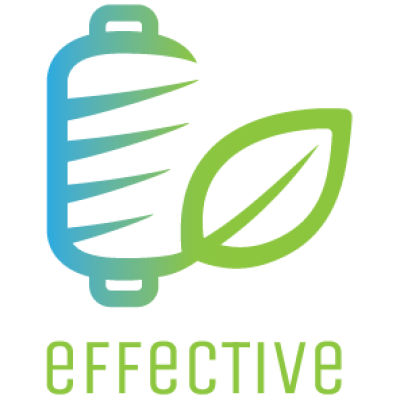‘The product needs to last, it needs to be durable, and it needs to perform. When we’re using a sustainable material, we need the same standards, we need to have the same quality as a benchmark product. That’s really important for us: if we lower our standards just because it’s a more sustainable material, it wouldn’t be a sustainable product as it wouldn’t last,’ explained René Bethmann, Innovation Manager at German outdoor clothing manufacturer Vaude, an EFFECTIVE partner.
I think the most important thing is that we discovered that it was possible to produce bio-based carpet out of bio-based yarn.
Cédric Charton, Quality, Security and Environment team leader at EFFECTIVE consortium
Sustainable prototypes
EFFECTIVE turned sugar beet processing by-products and waste vegetable oil into polyamides and polyesters. The polyamides were used to make both fibres and films, while the polyesters were used to make films.
A demonstration plant was set up in Ljubljana, Slovenia, to produce nylon from the fibres. The nylon was tested in the manufacture of prototype swimwear, cycling shorts, carpet and textile samples; the films were used in packaging.
The product needs to last, it needs to be durable, and it needs to perform.
René Bethmann, EFFECTIVE partner
‘I think the most important thing is that we discovered that it was possible to produce bio-based carpet out of bio-based yarn. Carpet production is not so easy. We mainly use petrol-based, tailor-made materials. Our processes are quite challenging and demanding regarding the quality of the material. So, at the beginning, we thought it could be really difficult to achieve a good result. And finally, the result was that, yes, it was possible,’ said Cédric Charton, Quality, Security and Environment team leader at EFFECTIVE consortium member Balsan, a French textile flooring company.
High-performing and recyclable material
Today, thanks to Econyl (Aquafil’s regenerated nylon), about 45% of Aquafil’s fibre turnover is coming from regeneration, by collecting nylon waste and producing beautiful new products.
Giulio Bonazzi, Aquafil CEO
The partners of the EFFECTIVE project were happy with the high performance of the material. In addition, the structure of the polyamides was enhanced so that they could be recycled. The polyesters are biodegradable and can be used for compost.
‘So far, we at Vaude have used recycled materials, but the challenge we have with recycled materials is that they are still based on fossil resources. So, we really need to start from the very beginning of a material's life, meaning starting from the raw feedstock source, which should come from renewable resources, and then having, in the future, a possible end-of-life scenario with recycling,’ added René Bethmann.
Wide application
EFFECTIVE involved 12 partners from seven European countries – Croatia, France, Germany, Italy, Slovenia, Spain and Sweden – plus the collaboration of the US-based biotechnology firm Genomatica. Along with the partners mentioned above, the European members of the consortium included the Swedish fashion giant H&M, the German sugar supplier Südzucker, and the Croatian packaging small business Bio-Mi.
So far, we at Vaude have used recycled materials, but the challenge we have with recycled materials is that they are still based on fossil resources.
René Bethmann, EFFECTIVE partner
Among the partners, the Italian bioplastics supplier Novamont is now looking to transform the prototypes into commercially available biomaterials. Lead partner Aquafil, the Italian-Slovenian nylon producer, is focused on further improving the efficiency of bio-based nylon production and the quality and circularity of the material. Plans are also in place to build an industrial-scale production plant.
‘Today, thanks to Econyl (Aquafil’s regenerated nylon), about 45% of Aquafil’s fibre turnover is coming from regeneration, by collecting nylon waste and producing beautiful new products. Now we want to increase this figure to 60-80%, and possibly, through the results of the EFFECTIVE project, also to build a bio-based nylon plant so that we can go to 100%,’ said Aquafil CEO Giulio Bonazzi.
Thanks to their flexibility, EFFECTIVE’s materials can be used in a wide range of products spanning industries, including construction, automotive production, packaging, clothing, carpets, and textiles. They can, therefore, create new value chains in a host of sectors. The materials thus constitute a stepping stone towards further research that could end fossil fuel use in textiles.
